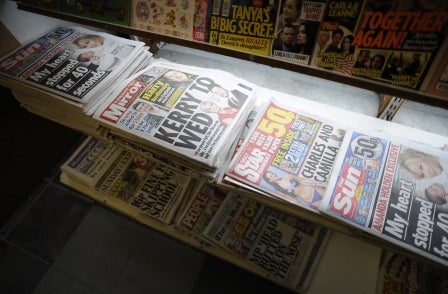
With Lord Justice Leveson's report on press ethics now expected by the end of November, the debate over the future of press regulation in the UK is hotting up.
He is widely expected to recommend some new form of press regulation – with much speculation that it will involve new legislation. It will be up to our elected politicians to decide what happens next and the lobbying of them has begun in earnest.
The NUJ, Hacked Off, many journalism academics and others favour the setting up of a new independent press regulator to replace the PCC. It would be underpinned by statute, meaning that it would be founded in law and be set up by Parliament.
NUJ leader Michelle Stanistreet makes the case for such a regulator here. She says: "We want to ensure that the press can operate under a form of regulation that is independent of government and – critically – free from the control of the industry owners and editors."
All the major national and regional press publishers favour continuing with a beefed-up version of self regulation. Telegraph executive director and chairman of press owners' body Pressbof Lord Black has outlined how this could work. The new regulator he proposes (and which all major publishers appear to support) would be headed up by a board which would be split 50/50 between industry representatives and lay-members (people from outside the industry) – headed by a chairman appointed by that board. It would have the power to levy fines of up to £1m in extreme circumstances and to carry out investigatons.
Those making the case against any statutory involvement in press regulation include journalism academic Tim Luckhurst here, and author of There's No Such Thing as a Free Press Mick Hume here.
Luckhurst says: "Any state involvement in the regulation of newspapers would restrict their capacity to play their historic role as a bulwark of our fundamental freedoms."
You can read a pretty comprehensive round-up of the recent debate over this issue on the press regulation section of this website.
The NUJ has come under fire over a perceived failure to consult its members on this issue. It's worth noting also that there was no formal consultation from Pressbof, or from PCC chairman Lord Hunt, before they drew up their proposals for a reformed and strengthened PCC.
You can read Lord Black's detailed proposals for a new press regulator here.
You can read PCC chairman Lord Hunt's proposals for a new regulator here. They are very similar to the Lord Black plan, but he also proposes that "each regulated publisher should be required by the regulator to provide an externally-run whistle-blowing service to all employees, journalists, free-lancers and unpaid interns".
So what do ordinary journalists (and other Press Gazette readers) think?
Do you broadly support the creation of a new independent press regulator underpinned by statute and set up by the state?
Or do you favour the continuation of self-regulation in some form?
Cast your vote below. This poll does not pretend to be anything more scientific then a finger-in-the-air exercise guaging the views of the readers of this website (who are mostly either journalists, or people with a professional interest in journalism). The poll has been set up to restrict multiple voting by allowing one vote per IP address, though I am sure it is not beyond the bounds of possibility to 'cheat' by voting twice. Please don't. We tried something similar earlier this week but suspended the exercise after several individuals complained on Twitter that they were able to vote more than once.
Email pged@pressgazette.co.uk to point out mistakes, provide story tips or send in a letter for publication on our "Letters Page" blog
